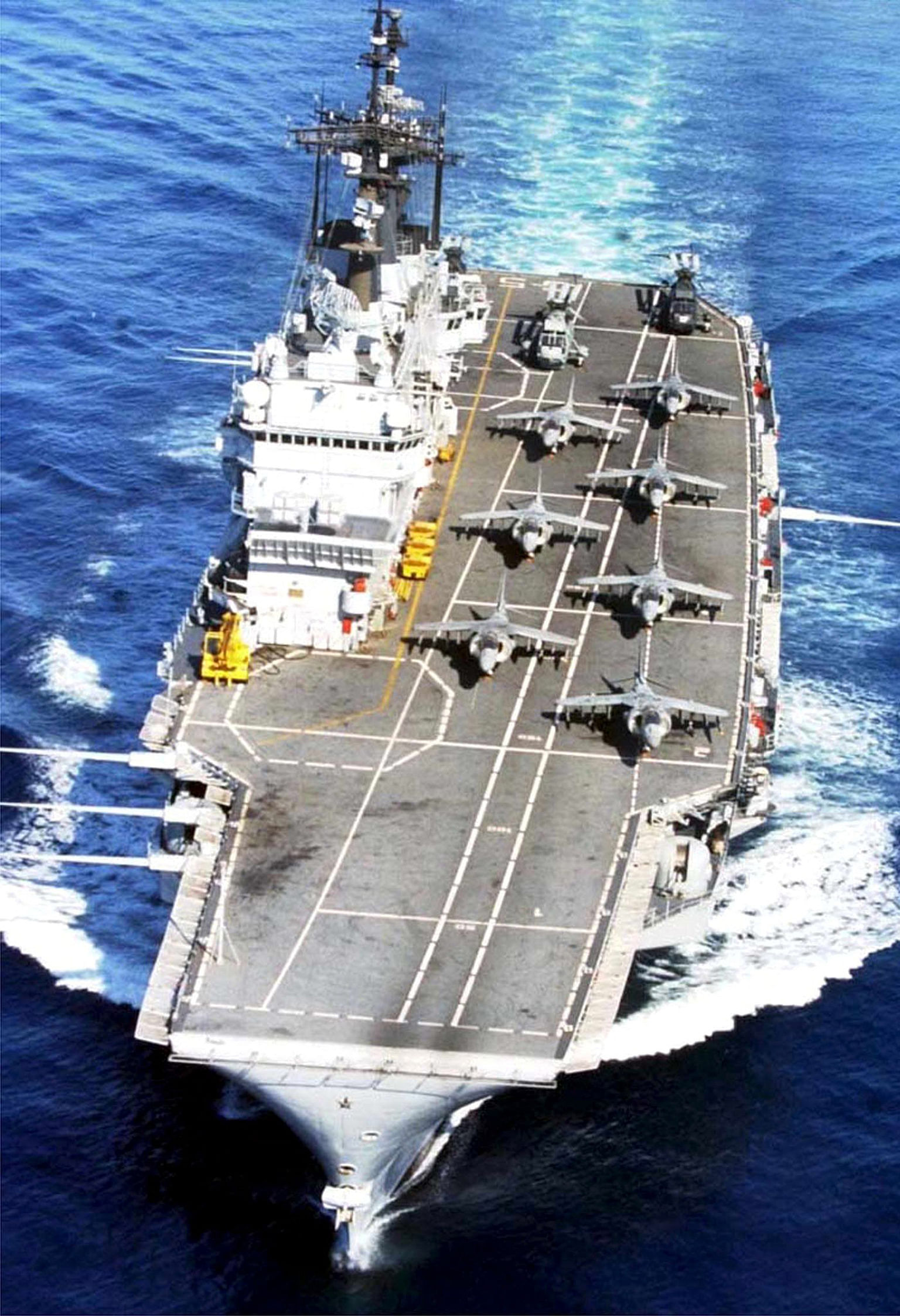ROME • The Italian aircraft carrier Giuseppe Garibaldi usually patrols the Mediterranean as the flagship of the European mission to save shipwrecked refugees.
But in the early hours of Singapore time today, it will host the leaders of Germany, France and Italy as they try to ensure the European Union does not flounder in the aftermath of Brexit.
The meeting of Dr Angela Merkel, Mr Francois Hollande and Mr Matteo Renzi off the coast of Naples will be rich in symbolism.
The Garibaldi, named after the general who helped unify the Italian state in the 19th century, is tackling one of today's greatest challenges to the European project in migration.
Before the leaders are helicoptered aboard from the island of Ventotene, they will visit the grave of Altiero Spinelli, an anti-fascist who helped draft a 1941 manifesto calling for a federal Europe.

Spinelli wrote on cigarette papers smuggled out of a prison camp on Ventotene while interned during World War II. He later became an EU commissioner.
The present-day leaders of the euro area's three biggest economies will focus on both the future vision of Europe and immediate challenges, such as Britain's vote to leave the EU, economic growth, terrorism and political turmoil in Turkey, as well as migration. They will hold a news conference and then have dinner on board the Garibaldi, seeking to shape where Europe goes from here and the EU's negotiating stance toward Britain.
"There's an awful lot of countries and all of them have slightly different things on their agendas," said Mr Rob Carnell, chief international economist at ING in London.
"It's going to be hard for them to come up with any conclusive 'This is what we need to do,' because they're all going to disagree," he added.
For Dr Merkel, the meeting marks the start of a whirlwind week of diplomacy. Criss-crossing Europe, she will talk to another 13 leaders between tomorrow and Saturday as she canvasses opinion before more concrete discussions at a summit of 27 member states in Bratislava next month. That event is planned to discuss a path forward for the EU without Britain.
Europe's divisions range from refugee resettlement to monetary policy and how to spur growth. Populist parties are strengthening from France and Italy to formerly communist Eastern Europe; Germany and France hold elections next year; while Mr Renzi faces a stalled economy, a banking crisis and a constitutional referendum expected in November.
For Dr Merkel, her European diplomacy marks a break from domestic challenges ahead of state elections in Mecklenburg-Western Pomerania on Sept 4. The Chancellor's approval rating has declined since she welcomed about one million refugees to Germany last year, while European officials are concerned that the EU's deal with Turkey to stem migrant flows through Greece may be in jeopardy following the failed coup attempt last month.
As ever, relaunching the EU economy may be a divisive topic. Italy wants European governments to do more to boost economic growth and is anticipating resistance from Germany, though French officials expect to find a Budget formula that can keep both their counterparts happy without bending the rules.
"We seek a different, more expansionary economic policy at the European level," Mr Sandro Gozi, Mr Renzi's Junior Minister for European affairs, said. "On this there is agreement with the French. There is work to be done with the Germans."
BLOOMBERG
